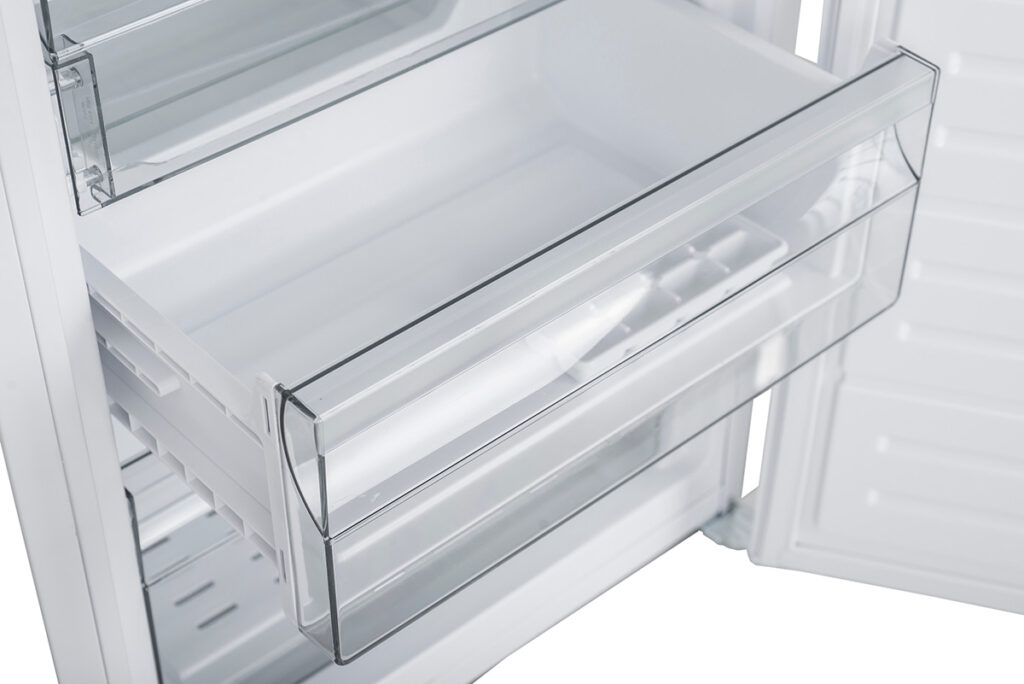When a room gets hot, it may feel like a great idea to cool it down by keeping your fridge open. However, this may not turn out to work as well as you envisaged. Though it seems like a fridge and an air conditioner carry out similar functions, this may not be the case.
A few times, these appliances get misused without the users understanding the repercussions of these actions. However, just a few people might be inquisitive as to whether consequences come from these acts of misuse or not. For example, I’ve heard many people wondering whether or not to use their fridges when their air conditioners are faulty.
One cannot use a fridge in place of an air conditioner. The reason is that they are designed to carry out two different functions which may appear similar to an unsuspecting person. Although a fridge may cool slightly, it would produce heat to cancel out its cooling effect.
Furthermore, even though standing right in front of the open fridge may be chilling for a while, it doesn’t quite work well. While an air conditioner is designed to cool an ample space, a refrigerator works by cooling only its compartment. Despite the size of an air conditioner, a fridge cools materials faster within a shorter time, thus their entirely different applications.
While your fridge works, it produces heat by removing the heat from the refrigerated materials and disposing of it outside. However, as the machine operates, more heat is produced from parts that work to remove heat from its compartments. Thus, a fridge functions by cooling the inner compartment while making the external environment hotter than it was.
All this may be a lot to take in. Therefore, I have taken out time to break down the differences between the two appliances, highlighted how the fridge works, and explained whether it can effectively substitute an Air Conditional or not.
Can You Use Your Fridge to Cool Your Hot Room?
As a kid, while removing items from the fridge, I’d savor the ultimate chilly feeling it placed on my skin. Then I would sometimes open the refrigerator to enjoy the cool air which emanated from it when temperatures were high. Unfortunately, although this cooled my skin for a while, it didn’t cover the entire room, even if I opened it for long.
It is not a very feasible idea trying to cool your room with a fridge. The reason is that the refrigerator produces a lot of heat while it works to reduce the temperature of its contents. More so, as this heat is produced, it is sent directly to the external surrounding, making it even hotter. However, if a fridge is kept open, only its nearest area is cooled by the refrigerator’s contents.
Is an Air Conditioner a Better Cooling System than a Fridge?
To an untrained person, the similarities between a fridge and an air conditioner are undoubted, with their use being interchangeable. However, they both carry out their specific functions separately, and you cannot substitute one machine for another.
Now, anyone who has used them for a long time and understands the working of both would say something completely different. Therefore, When it comes to cooling a room, an air conditioner doesn’t have a match.
An air conditioner works by trapping air from the surroundings and cooling it while removing humidity from the air in the room. However, a fridge works entirely differently, using coolants to produce cold air, which runs around the inner compartment.
These reasons make these two machines different and unsuitable for interchanging use. Thus, just like the air conditioner cannot be used to preserve food, the fridge can’t cool a room.
How does My Fridge Produce Heat?
A fridge is an electrical appliance that uses electric energy to do work and carry out its functions, thus producing heat. However, this heat is in most cases ineffectively absorbed by the heat dissipation pipes attached to the fridge’s outer walls. Therefore, this heat dissipates into the surrounding, increasing the temperature and causing further heating up of the nearby environment.
Also, heat generally passes from colder objects to hotter objects. Therefore heat is removed from the refrigerated items and sent out. By this, heat increases in the surrounding area, making the temperature rise to a higher level.
How Do I Reduce Heat Emanating From My Fridge?
There’s a straightforward way to reduce the heat which your fridge produces. However, this is a simple idea that escapes most people while they set up their fridges.
While arranging the setup for a fridge, the heat vents should be connected to an external environment. This process sends the heat produced outside the room, thus maintaining the room’s cool state.
While setting up their fridges, most people ignore this crucial point, therefore causing the room temperature to spike upwards.
Covering your liquids while it is refrigerated helps prevent evaporation which causes heat to dissipate into the environment. While vapor fumes are being released into the atmosphere, they take along heat which is released as well. Therefore, preventing this process of evaporation in refrigerated materials helps prevent heat from escaping into the room.
Also, cooling your items to room temperature before refrigeration prevents the refrigerator from producing excessive heat. The reason for this being that the fridge works by removing heat from the materials being cooled. Thus, refrigerating a material that possesses more heat would release more heat into the environment. Therefore, a cooled material being refrigerated would reduce the amount of heat the fridge produces.
Despite the many similarities between the air conditioner’s functionality and a refrigerator, their uses are not interchangeable. Using a fridge in place of an air conditioner has its disadvantages and is not as efficient. In conclusion, while an air conditioner cools down an environment, the refrigerator releases heat as it cools its compartments. Thus, this makes the fridge not ideal for cooling a room or an environment.

